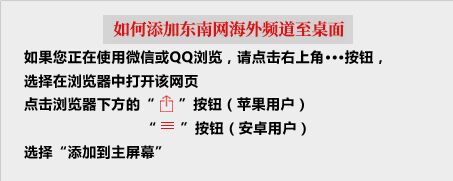


Feature: Aftermath of U.S. invasion leaves Iraq with intractable drug problem
BAGHDAD, June 11 (Xinhua) -- Iraq was almost a drug-free state 20 years ago. But since the U.S. invasion in 2003, violence, unemployment, poverty and a fragile health system have turned the country into a heaven for drug use and trafficking, of which young Iraqis have become the biggest victim.
Fakher Monther, head of the media office of the General Directorate of Narcotics Affairs at the Iraqi Ministry of Interior, said at a recent drugs awareness symposium that the most complex problem affecting Iraqi society is the spread of drugs, especially among young people.
"Crystal Meth and Captagon are widespread in Iraq and could cause the death of the users, in addition to the spread of Cannabis, also known as Marijuana, and less spread of heroin," Monther said during the symposium held on May 29 in the Iraqi capital of Baghdad.
There is also an increase in the use of Valium pills and analgesics such as Tramadol, which is a pain reliever used after surgeries, he added.
Under Iraqi law, whoever imports, exports, or manufactures narcotic substances shall be punished with death or life imprisonment, whoever possesses drugs shall be punished with imprisonment for 10 to 15 years, and there are also penalties for those who are caught as drug users.
But harsh penalties failed to curb the spread of drugs, let alone the trafficking activities. The General Directorate of Narcotics Affairs in Iraq arrested 8,676 drug dealers and drug users during dozens of raids in Baghdad and other provinces from November 2022 to May 2023.
More than 9.27 million Captagon pills, 456 weapons, 118 hand grenades, and 808 vehicles were seized during the same period, according to Monther.
On the sidelines of the symposium, Monther told Xinhua that the provinces of Maysan, Basra, and Anbar are the most affected by the drug trade due to their border with Iran or Syria.
Ali Al-Saadi, a social activist in the field of drug control, told Xinhua that the Iraqi society faces a real danger because the damage of drugs is not limited to drug abusers, as it leads to the collapse of society through increased violence and murders, family disintegrations, and even economic and cultural deterioration.
Ahmed Mohammed Shaker, a psychotherapist at the Ibn Rushd Psychiatric Hospital in Baghdad, believes that the increase in drug addicts manifests the deterioration of the Iraqi family system in the years following the U.S. invasion in 2003.
"Basically, any family consists of three pillars: the father, the mother, and the children," said Shaker, adding that the U.S. invasion left many families with the loss of one or two of these pillars and gave rise to some societal problems, including drug addiction.
It's not surprising that Iraqi Prime Minister Mohammed Shia' al-Sudani underlined in May the importance of waging a "war on drugs", considering it as important as combating terrorism.
Drug dealing is one of the main ways to fund terrorism, and the circulation of drugs thrives in the shadow of terrorism, al-Sudani said.
Before 2003, the use and trade of drugs in Iraq were very limited, if not nearly nonexistent. Iraq was a model in the region in terms of the strict security measures against the use and trade of drugs.
Then everything changed with the U.S. invasion in 2003 which destroyed Iraq's law enforcement system, opening the door to drug traffickers who turned many Iraqis into drug addicts. The continued chaos and conflicts that swept the country have also hindered successive governments from properly addressing the drug problem.
In addition, widespread poverty and a high unemployment rate have aggravated people's frustration and increased the likelihood of drug use.
The Iraqi Ministry of Planning said that the poverty rate in the country was 25 percent in 2022. The national unemployment rate in Iraq stood at 16.5 percent, while it was close to 36 percent among young people, according to a press release issued by the International Labour Organization in 2022.
Another difficulty facing the Iraqi government in fighting the drug trade is that it is unable to effectively control its borders with neighboring countries to keep out drug traffickers.
What's worse, a poorly invested health system makes it difficult to help addicts get off drugs.
Adnan Yasin, head of the Ibn Rushd Psychiatric Hospital, said that the hospital is no longer able to accommodate the huge number of drug addicts due to the spread of drug use in the country.
He revealed that most of the drug addicts accepted by the hospital age from 20 to 40 years old, and there are also individual cases under the age of 20 and over 40 years old.
"There is still a shortage of wards for drug addicts and a lack of beds," Yasin told Xinhua.
Though the Iraqi government recently opened two hospitals for treating drug abusers in Baghdad, namely the al-Ataa Hospital and the Medical Rehabilitation Hospital, Yasin insisted that there is still a need for building more such hospitals.

福建省福州市华林路84号福建日报大厦